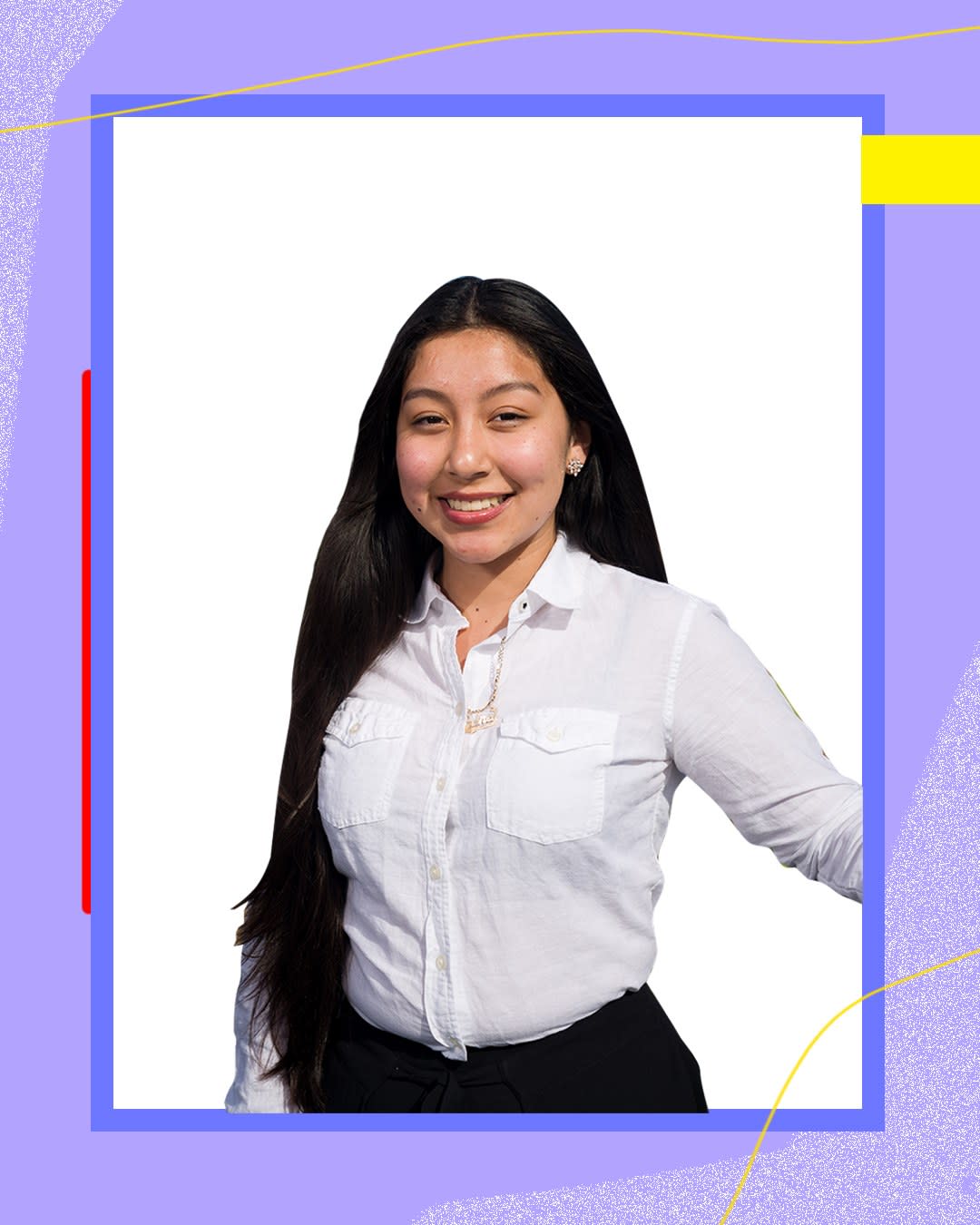21 Under 21: How Edna Chavez Is Making Residents of South Los Angeles Safer and More Aware of Their Rights

Edna Chavez is part of Teen Vogue’s 21 Under 21 class of 2018, which spotlights extraordinary young women, girls, and femmes making waves in their industries or passions of choice.
Edna Chavez did not know she was going to speak at the March for Our Lives in Washington, D.C., until a week before the historic event took place. “That’s when everything went hard,” she tells Teen Vogue.
During the week leading up to the March 24, 2018, rally, the 18-year-old remembers “writing my speech, balancing school, and then having to practice how I’m going to do it…it was a lot.” The end result was riveting: In just under eight minutes, Edna linked the school shooting at Marjory Stoneman Douglas High School to the everyday gun violence she has witnessed firsthand. For many young people, she reminded the crowd, gun violence “is normal, normal to the point that I learned to duck from bullets before I learned how to read.” She knows she is not alone.
“That moment on that stage, it was not just me. It was people from Chicago, from Baltimore, from so many different areas that were talking about everyday gun violence,” she remembers. “We made sure it was engraved into people’s minds that shootings happen every day in low-income communities.” She also included Spanglish in her speech; her family is indigenous Guatemalteco, and blending languages “is just a part of me.” (She cites someone being able to watch the march and say “That girl looks like me” as a crucial form of representation.)
Edna got her start in activism in 2016, during the lead-up to the presidential election. She joined the Community Coalition’s South Central Youth Empowerment Through Action (SCYEA) group and began canvassing to inform her neighbors about how certain propositions would impact their lives. At the time, her father was incarcerated for his undocumented status, and he was later deported, an experience she says was a driving force in her activism. To mobilize her community, she began “passing out flyers, we did Know Your Rights workshops, we did community meetings….”
She points to the ways in which a lack of affordable housing and resources in the school system can contribute to gun violence. “One of my peers [explained it as]: ‘We haven’t been forgotten, we’re just being ignored,'” she says. “My community is a reflection of me, and I'm a reflection of my community. People don't really understand and appreciate the beauty of [South Los Angeles] and the potential that it and the people that live in it have.”
But Edna is also quick to educate people on their ignorance, and turn a moment into an opportunity: “Whenever somebody asks me, ‘Is it really dangerous?’ I'll be like, ‘It's under-resourced, it's underfunded. We lack better books and buildings, and we do have everyday violence. But at the end of the day, are you going to help me, or are you just going to continue with that idea that where I'm from, my home, is a dangerous area?'”
Now, Edna is busy juggling activism and schoolwork. She’s studying pre-nursing in college, though she admits that the application process left her feeling more than a little underestimated. “Some [people] were telling me to switch my major because they thought I wouldn’t get in,” she remembers. “It was a matter of believing in myself. You have to learn to motivate yourself when you know you don’t have that backbone [from anyone else].”
Edna sees her major as a way to give back to the community even more. In 21 years, she says, she wants to see communities like hers with “more resources and more funding, so that the everyday violence people have experienced, that fight will be over. There’s no other way, it has to stop.”

